- 翰林提供学术活动、国际课程、科研项目一站式留学背景提升服务!
- 400 888 0080
Edexcel IGCSE Physics 复习笔记 3.1.1 Transverse & Longitudinal Waves
Edexcel IGCSE Physics 复习笔记 3.1.1 Transverse & Longitudinal Waves
Transverse & Longitudinal Waves
- Waves can exist as one of two types:
-
- Transverse
- Longitudinal
Transverse Waves
- Transverse waves are defined as:
Waves where the points along its length vibrate at 90 degrees to the direction of energy transfer
- For a transverse wave:
- The energy transfer is in the same direction as the wave motion
- They transfer energy, but not the particles of the medium
- Transverse waves can move in a liquid or solid, but not a gas
- Some transverse waves (electromagnetic waves) can move in a vacuum
- The point on the wave that is:
- The highest above the rest position is called the peak, or crest
- The lowest below the rest position is called the trough
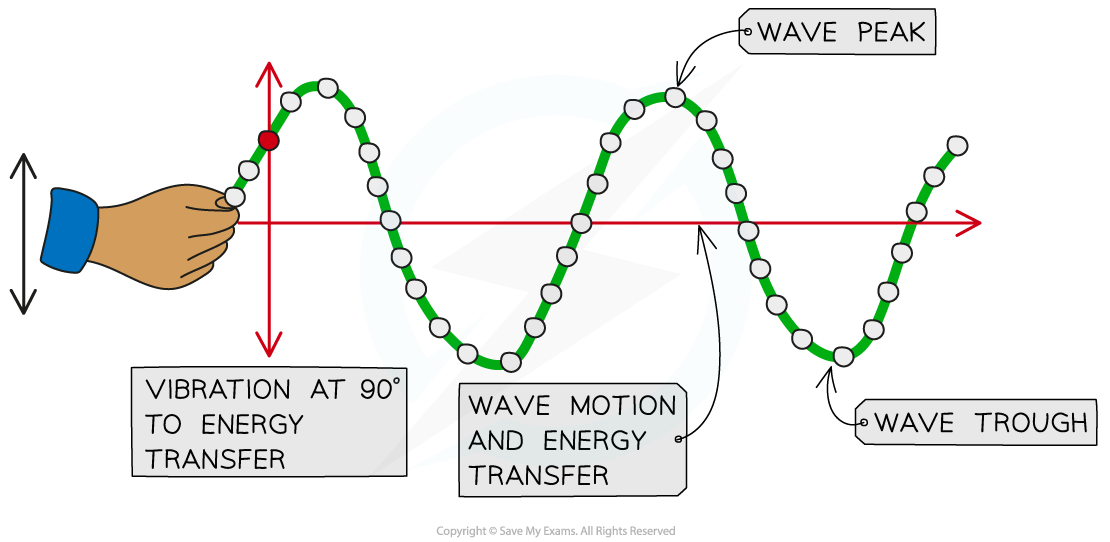
Transverse waves can be seen in a rope when it is moved quickly up and down
- Examples of transverse waves are:
- Ripples on the surface of water
- Vibrations in a guitar string
- S-waves (a type of seismic wave)
- Electromagnetic waves (such as radio, light, X-rays etc)
Longitudinal Waves
- Longitudinal waves are defined as:
Waves where the points along its length vibrate parallel to the direction of energy transfer
- For a longitudinal wave:
- The energy transfer is in the same direction as the wave motion
- They transfer energy, but not the particles of the medium
- They can move in solids, liquids and gases
- They can not move in a vacuum (since there are no particles)
- The key features of a longitudinal wave are where the points are:
- Close together, called compressions
- Spaced apart, called rarefactions
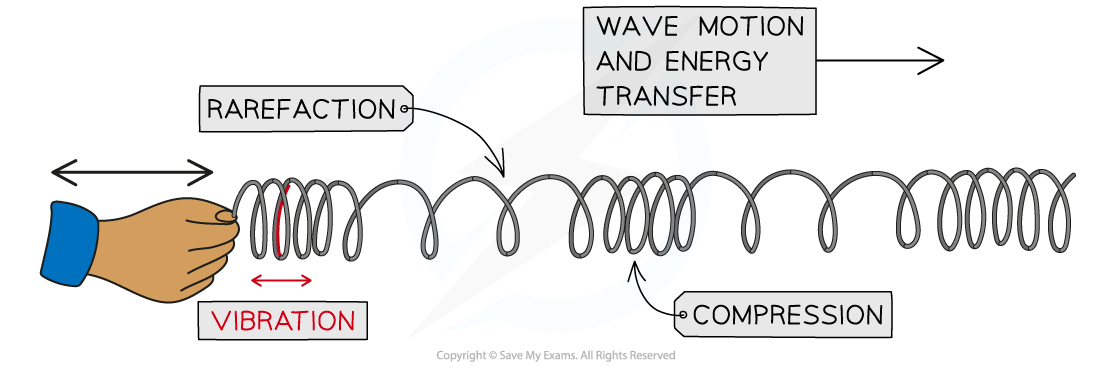
Longitudinal waves can be seen in a slinky spring when it is moved quickly backwards and forwards
- Examples of longitudinal waves are:
- Sound waves
- P-waves (a type of seismic wave)
- Pressure waves caused by repeated movements in a liquid or gas
- Longitudinal waves are usually drawn as several lines to show that the wave is moving parallel to the direction of energy transfer
-
- Drawing the lines closer together represents the compressions
- Drawing the lines further apart represents the rarefactions
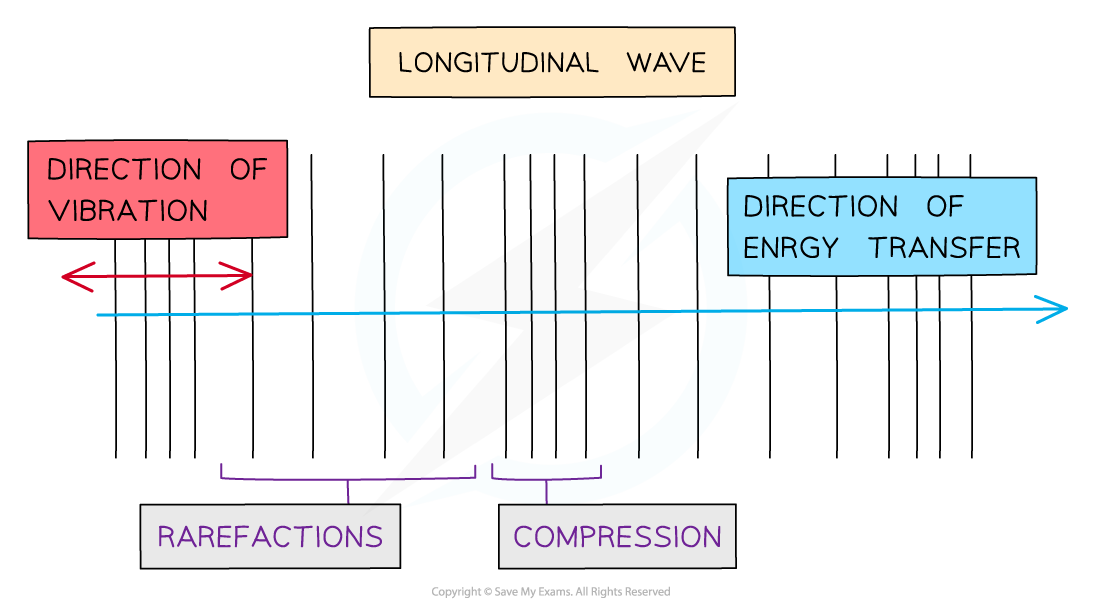
Longitudinal waves are represented as sets of lines with rarefactions and compressions
Comparing Transverse & Longitudinal Waves
- Wave vibrations can be shown on ropes (transverse) and springs (longitudinal)
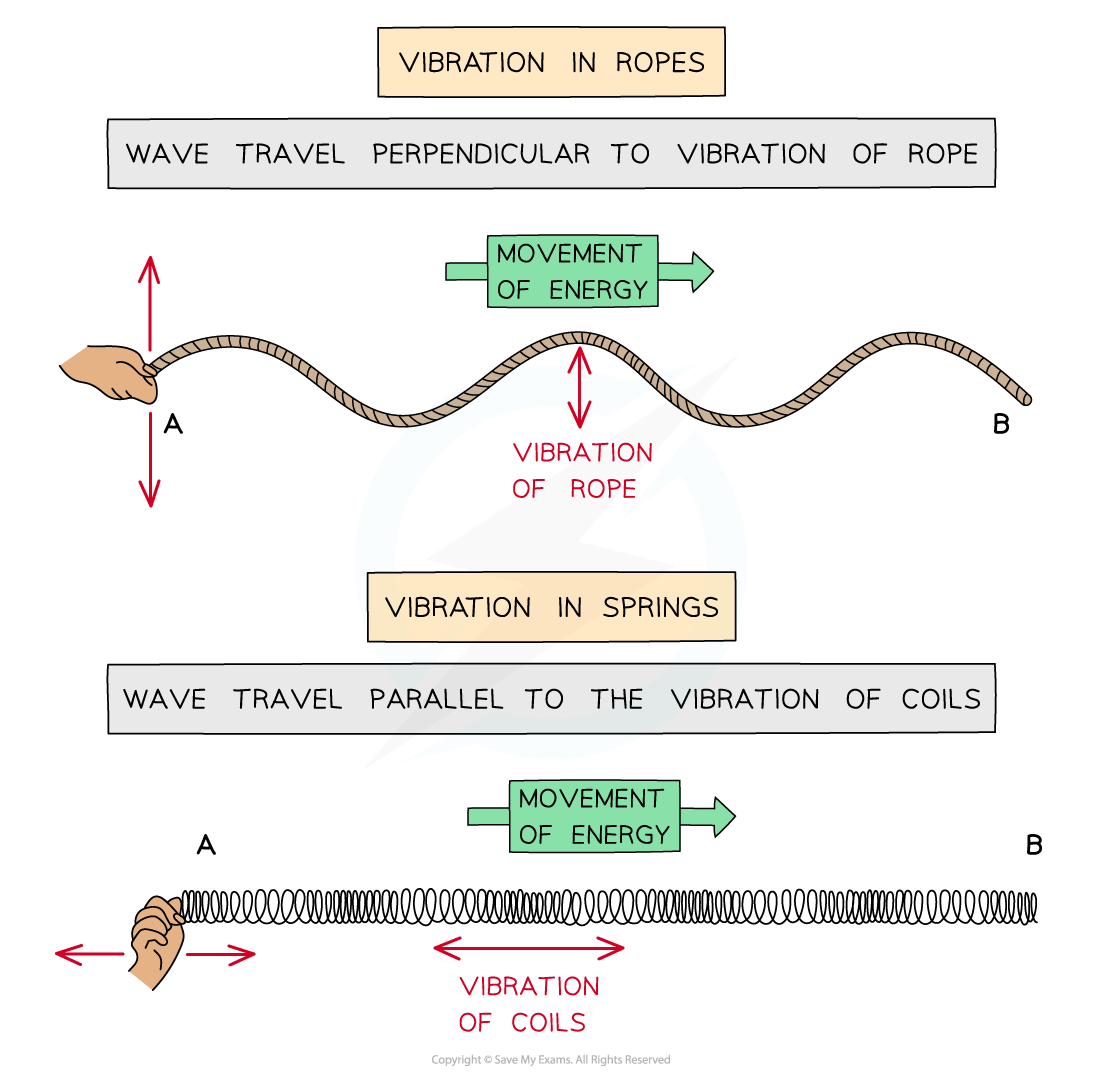
Waves can be shown through vibrations in ropes or springs
- The different properties of transverse and longitudinal waves are shown in the table:
Transverse Waves v Longitudinal Waves Table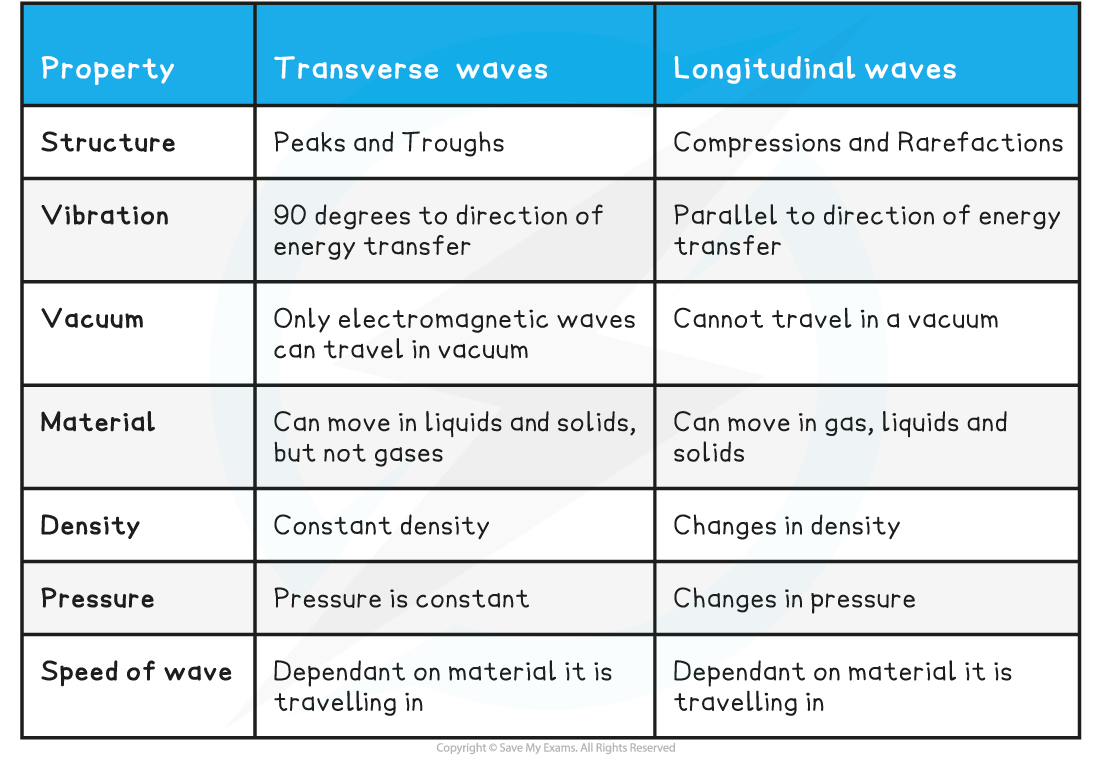
Worked Example
The diagram below shows a loudspeaker generating sound waves, which travel to the right as indicated. Sound waves are longitudinal.A dust mote floats in the air just next to the loudspeaker, labelled D. Draw arrows on the diagram to indicate how the dust mote D would vibrate as sound waves pass it.
Draw arrows on the diagram to indicate how the dust mote D would vibrate as sound waves pass it.
Step 1: Recall the definition of longitudinal waves
-
- Points along longitudinal waves vibrate parallel to the direction of energy transfer
- This means the dust mote vibrates in a line parallel to the direction of the sound waves drawn
Step 2: Draw arrows at the point labelled D to show it vibrating in parallel to the direction of the sound waves

Waves & Energy
- Waves transfer energy and information
- Waves are described as oscillations or vibrations about a fixed point
- For example, ripples cause particles of water to oscillate up and down
- Sound waves cause particles of air to vibrate back and forth
- In all cases, waves transfer energy without transferring matter
- Objects floating on water provide evidence that waves only transfer energy and information and not matter

Waves transfer energy and information, but not matter. This toy duck bobs up and down as water waves pass underneath
- The type of wave on the surface of a body of water is a transverse wave
- This is because the duck is moving perpendicular to the direction of the wave
- The plastic duck moves up and down but does not travel with the wave
- All waves transfer energy, but they do not transfer the particles of the medium
- This means when a wave travels between two points, no matter actually travels with it, the points on the wave just vibrate back and forth about fixed positions
- Objects floating on water, like the toy duck, simply bob up and down when waves pass under them, demonstrating that there is no movement of matter in the direction of the wave, only energy
Exam Tip
Exam questions may ask you to describe waves and this is most easily done by drawing a diagram of the wave and then describing the parts of the wave - a good, clearly labelled diagram can earn you full marks!You may also be asked to give further examples of transverse or longitudinal waves - so memorise the lists given here!
转载自savemyexam

最新发布
© 2025. All Rights Reserved. 沪ICP备2023009024号-1









